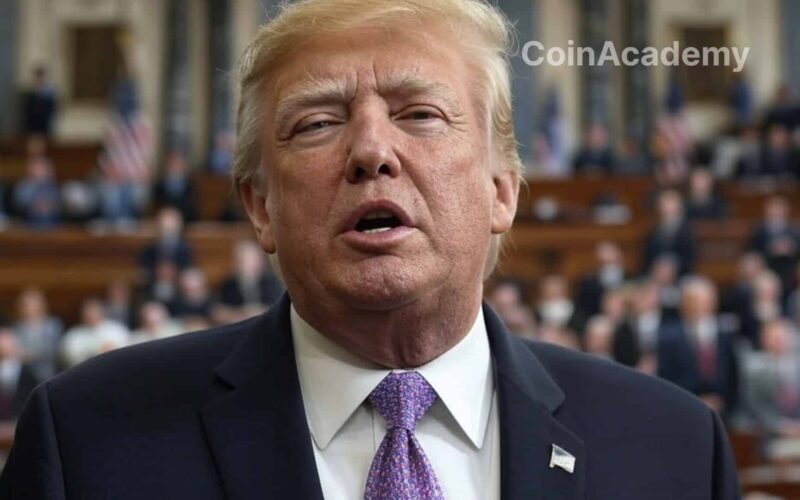The US Congress has voted to cancel an IRS rule that would have required DeFi platforms to collect tax data from their users, a measure deemed unenforceable.
Proponents of the cancellation argue for innovation and technological sovereignty, while opponents denounce the risk of tax evasion and money laundering.
If Donald Trump signs the resolution, the IRS will be permanently prevented from imposing a similar regulation in the future, marking a turning point for crypto regulation in the United States.
A Victory for Decentralized Finance Advocates
The US House of Representatives has voted in favor of canceling a controversial rule from the Internal Revenue Service (IRS) that would have required decentralized finance (DeFi) platforms to collect tax information from their users. Passed by a large bipartisan majority (292 votes to 132), this resolution follows a similar vote in the Senate and still needs to be validated a second time before being sent to President Donald Trump, who is expected to sign it.
An Unenforceable Regulation
The IRS rule, introduced towards the end of former President Joe Biden’s term, aimed to classify DeFi platforms as traditional brokers, forcing them to collect and transmit data on their users’ transactions. This framework is impossible to implement, according to the resolution’s supporters, who point out that decentralized platforms do not have access to, nor the technical capacity to collect this information, unlike centralized exchanges and banks.
DeFi platforms are not banks or brokers. They don’t even collect the information necessary for the application of this rule.
Jason Smith, Republican representative for Missouri
DeFi Regulation: Between Innovation and Fighting Fraud
While proponents of the resolution see this decision as a victory for innovation and technological sovereignty in the United States, others believe it opens the door to abuse. Democrat Lloyd Doggett denounced a measure that favors “special interests” and facilitates “tax evasion, terrorist financing, and money laundering”, while increasing the federal debt by $4 billion.
On the other hand, Democrat Danny Davis defended the IRS rule by comparing it to the obligations of stockbrokers:
When you sell stocks, the broker informs the IRS. Why should cryptocurrencies be treated differently?
Clearly, recent changes are not enough to refresh old mentalities…
An Ongoing Legislative Battle
If the resolution passes again in the Senate and is signed by Donald Trump, the IRS would be definitively prohibited from imposing similar regulations in the future. This legislative turning point could mark a major evolution in the regulation of cryptocurrencies in the United States, by limiting the power of tax agencies over the DeFi industry.
As lawmakers clash over the future of decentralized finance, Tuesday’s vote demonstrates the growing influence of crypto in US political decisions.




